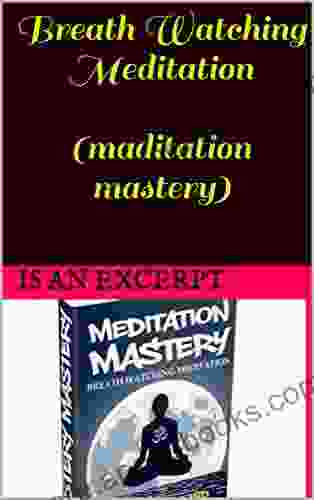Unleash Your Potential: Discover the Secrets to Time Mastery and Accomplish Your Dreams

Chapter 1: The Value of Time
Time is the most precious resource we have, yet it often feels like we never have enough of it. We're constantly rushing from one task to the next, trying to keep up with the demands of our work, our families, and our social lives. As a result, we often feel stressed, overwhelmed, and like we're not making any progress towards our goals.
But what if there was a way to get more time? What if there was a way to free up our schedules so that we could finally do the things we've always wanted to do?
The good news is, there is a way. In this book, you'll learn how to get the time you need to do the things you want.
4.9 out of 5
| Language | : | English |
| File size | : | 999 KB |
| Text-to-Speech | : | Enabled |
| Screen Reader | : | Supported |
| Enhanced typesetting | : | Enabled |
| Word Wise | : | Enabled |
| Print length | : | 149 pages |
| Lending | : | Enabled |
Chapter 2: The Time Management Myth
The first step to getting more time is to debunk the time management myth.
The time management myth is the belief that we can get more time by simply being more efficient. We think that if we can just find the right system or the right app, we'll be able to squeeze more hours into our day.
But the truth is, there's no such thing as time management. We can't create more time, and we can't stop time from passing. The only thing we can do is learn to manage our time better.
Chapter 3: The Four Pillars of Time Mastery
There are four pillars of time mastery:
- Prioritization: Deciding what's important and what's not.
- Planning: Mapping out your day and week.
- Execution: Getting things done.
- Review: Taking time to reflect on your progress and make adjustments.
If you want to get more time, you need to master all four of these pillars.
Chapter 4: Prioritization
The first step to time mastery is prioritization. This means deciding what's important and what's not.
Once you know what's important, you can start to make decisions about how to spend your time. You can say no to things that aren't important, and you can delegate tasks that someone else can do.
Chapter 5: Planning
Once you know what you want to accomplish, you need to start planning. This means mapping out your day and week so that you can make the most of your time.
There are many different planning systems available, so find one that works for you. The important thing is to be consistent with your planning and to make sure that you're actually planning for the things that are important to you.
Chapter 6: Execution
Execution is the third pillar of time mastery. This is where you actually get things done.
The best way to execute is to break down your tasks into smaller, more manageable steps. This will make them seem less daunting and more achievable.
Once you have a plan, you need to take action. Don't wait for the perfect time to start, just start. The sooner you start, the sooner you'll reach your goals.
Chapter 7: Review
The final pillar of time mastery is review. This means taking time to reflect on your progress and make adjustments.
Reviewing your progress will help you identify what's working and what's not. You can then make changes to your plan so that you can continue to improve your time management skills.
Chapter 8: The Power of No
One of the most important things you can learn for time mastery is the power of no.
Learning to say no to things that aren't important will free up your time so that you can focus on the things that are.
It's not always easy to say no, but it's an essential skill for time mastery.
Chapter 9: The Art of Delegation
Another important time management skill is delegation.
Delegation is the process of giving someone else the responsibility for a task. This can free up your time so that you can focus on more important things.
If you're not sure how to delegate, start by giving someone else a small task. Once you've seen how well they do, you can start to delegate more responsibility.
Chapter 10: The Importance of Breaks
It's important to take breaks throughout the day. This will help you stay energized and focused.
Breaks don't have to be long. Even a few minutes away from your desk can help you refresh and return to your work with renewed energy.
Chapter 11: The Power of Habit
The best way to improve your time management skills is to create good habits.
Habits are automatic behaviors that we do without thinking. When you create good time management habits, you'll find it easier to stay on track and achieve your goals.
There are many different things you can do to create good time management habits. Some simple tips include:
- Set a regular schedule. This will help you stay organized and make it easier to plan your day.
- Create a to-do list. This will help you keep track of what you need to do and make it easier to prioritize your tasks.
- Take breaks. As we mentioned earlier, breaks are essential for staying energized and focused.
- Learn to say no. This is a crucial skill for time mastery.
- Delegate. Delegation can free up your time so that you can focus on more important things.
Getting more time isn't about working harder or being more efficient. It's about learning to manage your time better.
By mastering the four pillars of time mastery, you can get more time to do the things you want. You can finally achieve your goals and live the life you've always dreamed of.
4.9 out of 5
| Language | : | English |
| File size | : | 999 KB |
| Text-to-Speech | : | Enabled |
| Screen Reader | : | Supported |
| Enhanced typesetting | : | Enabled |
| Word Wise | : | Enabled |
| Print length | : | 149 pages |
| Lending | : | Enabled |
Do you want to contribute by writing guest posts on this blog?
Please contact us and send us a resume of previous articles that you have written.
 Book
Book Novel
Novel Page
Page Chapter
Chapter Text
Text Story
Story Genre
Genre Reader
Reader Library
Library Paperback
Paperback E-book
E-book Magazine
Magazine Newspaper
Newspaper Paragraph
Paragraph Sentence
Sentence Bookmark
Bookmark Shelf
Shelf Glossary
Glossary Bibliography
Bibliography Foreword
Foreword Preface
Preface Synopsis
Synopsis Annotation
Annotation Footnote
Footnote Manuscript
Manuscript Scroll
Scroll Codex
Codex Tome
Tome Bestseller
Bestseller Classics
Classics Library card
Library card Narrative
Narrative Biography
Biography Autobiography
Autobiography Memoir
Memoir Reference
Reference Encyclopedia
Encyclopedia Rachel Searles
Rachel Searles Skawt Chonzz
Skawt Chonzz Writing On The Wall
Writing On The Wall Pamela Warren
Pamela Warren Stephen Tvedten
Stephen Tvedten Sara James
Sara James Mahanidhi Swami
Mahanidhi Swami Steven Ross
Steven Ross Kate Meader
Kate Meader William C Kirby
William C Kirby Kim Moore
Kim Moore Steve Sailer
Steve Sailer Margaret Read Macdonald
Margaret Read Macdonald William Hoffman
William Hoffman Harvey Kurtzman
Harvey Kurtzman Samantha Greene
Samantha Greene Weina Dai Randel
Weina Dai Randel Wendy D Johnson
Wendy D Johnson The Mother
The Mother Lynn F Jacobs
Lynn F Jacobs
Light bulbAdvertise smarter! Our strategic ad space ensures maximum exposure. Reserve your spot today!
 Casey BellFollow ·12.3k
Casey BellFollow ·12.3k Ismael HayesFollow ·18k
Ismael HayesFollow ·18k Mario Vargas LlosaFollow ·16.9k
Mario Vargas LlosaFollow ·16.9k Curtis StewartFollow ·6.2k
Curtis StewartFollow ·6.2k Fabian MitchellFollow ·11.7k
Fabian MitchellFollow ·11.7k John GrishamFollow ·19.2k
John GrishamFollow ·19.2k Preston SimmonsFollow ·8k
Preston SimmonsFollow ·8k Tom HayesFollow ·9.6k
Tom HayesFollow ·9.6k

 Finn Cox
Finn CoxCarmen Suite For Flute Quartet (G Alto Flute) ( Carmen...
Experience the Magic of...

 Andy Cole
Andy ColeUncover Hidden Truths: A Comprehensive Guide to Detecting...
: The Silent...

 Ken Simmons
Ken SimmonsUnleash Your Potential: Transform Frustration and...
Are you tired of feeling...

 Rick Nelson
Rick NelsonHard To Kill: A Gripping Thriller That Will Keep You on...
Tom Rollins is a...

 Ivan Turner
Ivan TurnerUnleash the Power of Your Breath: Discover Breath...
In the tapestry of life, where stress and...
4.9 out of 5
| Language | : | English |
| File size | : | 999 KB |
| Text-to-Speech | : | Enabled |
| Screen Reader | : | Supported |
| Enhanced typesetting | : | Enabled |
| Word Wise | : | Enabled |
| Print length | : | 149 pages |
| Lending | : | Enabled |














